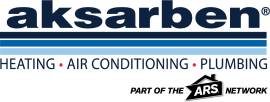The Right Way to Clean Your Drains
Your drains play a vital role in the function of your plumbing system. However, drains can also be prone to issues such as clogs, which are one of the most commonly-reported home plumbing problems in Omaha. While drain cleaning may seem simple, there are actually many solutions that can be brought to bear on a tough clog; the key to effective drain cleaning and a healthy home plumbing system is using the right method to clear your drain without causing harm to your plumbing or fixtures in the process. Keep reading for a few simple tips on the right way to clean your drains—and how to know when it’s time to call your professional plumber for help.
Chemical Cleaning
Many drain cleaning chemicals are designed to heat up or dissolve clogs so they can be flushed through your pipes. However, this can damage your pipes and even pose a health threat if you contact these chemicals during use. Thus, it’s important to choose only an enzymatic drain cleaner or an eco-friendly home solution to chemically clean your drains. Enzymatic drain cleaners break down the organic material of a clog without damaging the surrounding pipe; similarly, solutions such as baking soda and vinegar will cause organic debris to dissolve or loosen so it can be safely flushed away. However, these options are best for smaller clogs and drain maintenance—if you’re experiencing a significant or complete blockage of a drain, you may want to choose an alternative solution.
Plunging
If left in place, a clog will continue to grow until it eventually blocks the entire drainpipe. This type of stubborn clog is often best addressed with a plunger, which is a simple tool that creates suction to dislodge or break up the components of a clog so it can be flushed through the drainpipe and out of your system. Using a plunger is relatively simple, but requires a good seal for proper suction. When using a plunger, make sure the head covers the drain completely and there is enough water available to cover the lip of the plunger; you can add water to a tub, toilet, or sink if necessary to create this seal. Push directly down and pull up on the plunger’s handle several times, leaving the cup in place, then pull the plunger away to see if the water drains. You may need to repeat this process several times to achieve your goal.
Professional Solutions
If the solutions suggested above don’t work, it’s time to call your Omaha plumber for help. Professional plumbers have access to tools and solutions that can cut through the most stubborn clogs, along with the knowledge of how to use them correctly to protect your plumbing in the process. The first solution your plumber may try is cabling, or snaking. This solution uses a long, extendable cable with a hooked or pointed head, which can be fed through a drain or sewer line to break up or pull up the offending clog. Alternatively, your plumber can use a high-powered jet of water to scour away buildup, tree roots, and other materials that may be blocking your drains or sewer line and causing trouble.
Any time you aren’t sure how to clear a clog or your own attempts are unsuccessful, it’s time to call in your Omaha plumber for professional assistance. You can find out more about our drain and sewer cleaning solutions when you take a look through our website, or click through our blog for more helpful home plumbing tips, tricks, solutions, and updates.
““
